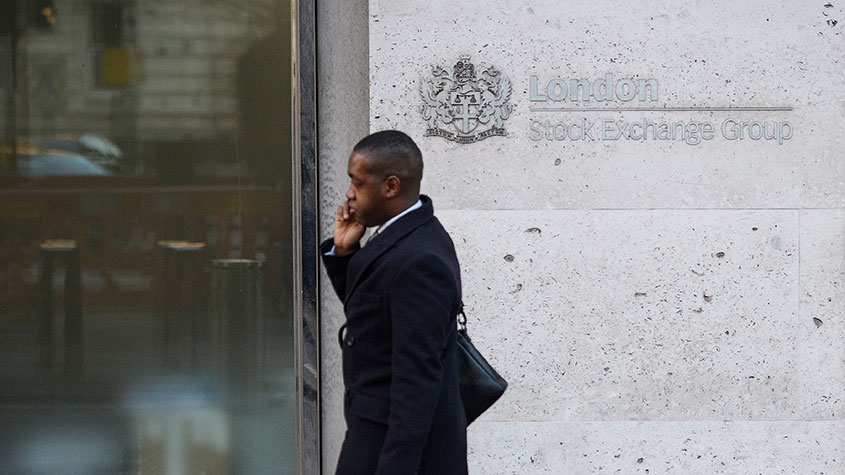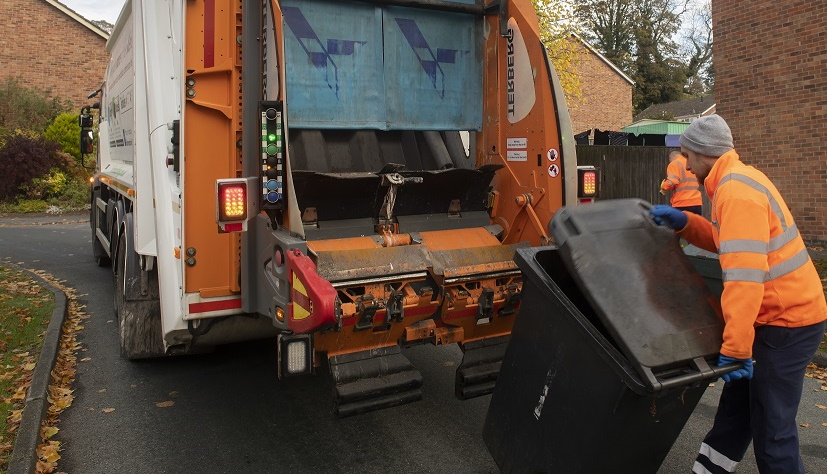The Future Of Bangladesh-Europe Relations: A Focus On Collaborative Growth

Table of Contents
Enhanced Trade and Investment
Exploring the potential for increased bilateral trade and investment between Bangladesh and the European Union is paramount for future growth. Strengthening these economic ties will benefit both parties significantly.
Boosting RMG Exports: Bangladesh's Ready-Made Garment (RMG) sector is a global powerhouse, and Europe remains a crucial export market. However, maintaining and expanding this market share requires addressing key concerns.
- Improved supply chain transparency and traceability: Implementing robust traceability systems throughout the RMG supply chain will build consumer confidence and meet growing demands for ethical and sustainable sourcing. This includes better record-keeping, improved auditing processes, and the use of blockchain technology.
- Investing in sustainable manufacturing technologies: Adopting environmentally friendly technologies and practices is vital for meeting stricter EU environmental regulations and reducing the sector's carbon footprint. This involves investing in renewable energy sources, water management systems, and waste reduction initiatives.
- Meeting stricter EU environmental and social standards: Compliance with EU regulations regarding labor practices, worker safety, and environmental protection is essential for maintaining market access. This necessitates ongoing investment in worker training, improved working conditions, and robust monitoring mechanisms.
Attracting European Investment in Bangladesh: Bangladesh offers a compelling investment proposition, boasting a young and dynamic workforce, a strategic geographical location, and a growing consumer market. However, attracting significant European investment requires proactive measures.
- Streamlining investment regulations and procedures: Simplifying bureaucratic processes, reducing regulatory hurdles, and promoting transparency will create a more attractive investment climate. This includes streamlining licensing procedures, reducing paperwork, and establishing a single-window system for investors.
- Developing special economic zones (SEZs) with investor-friendly policies: Creating well-developed SEZs with state-of-the-art infrastructure, tax incentives, and streamlined regulations will attract foreign direct investment (FDI) in key sectors. This necessitates substantial infrastructure development, including reliable power supplies, efficient transportation networks, and modern communication systems.
- Showcasing Bangladesh's competitive advantages: Actively promoting Bangladesh's competitive advantages – such as its young and growing population, strategic location, and access to regional markets – through targeted investment promotion campaigns and international forums is crucial.
Development Cooperation and Aid
European development assistance plays a vital role in supporting Bangladesh's sustainable development goals (SDGs). This collaboration is crucial for addressing pressing challenges and fostering long-term growth.
Climate Change Mitigation and Adaptation: Bangladesh is highly vulnerable to climate change impacts. Collaboration with Europe is essential for developing effective climate change mitigation and adaptation strategies.
- Joint projects on climate-resilient infrastructure: Investing in climate-resilient infrastructure, such as flood defenses, improved drainage systems, and drought-resistant crops, is crucial for minimizing the impact of extreme weather events. This requires collaboration on designing and implementing such projects, leveraging European expertise and technology.
- Investing in renewable energy sources: Transitioning to renewable energy sources, such as solar, wind, and hydro power, is essential for reducing greenhouse gas emissions and improving energy security. This necessitates joint investments in renewable energy projects and technology transfer from Europe.
- Supporting climate change adaptation strategies in vulnerable communities: Providing support to vulnerable communities for adapting to the impacts of climate change, including early warning systems, disaster preparedness training, and access to climate-resilient livelihoods, is crucial.
Strengthening Governance and Human Rights: Promoting good governance, human rights, and the rule of law are vital for sustainable development and attracting foreign investment. Europe can play a significant role in supporting these efforts.
- Supporting capacity building programs for government institutions: Providing technical assistance and training to strengthen the capacity of government institutions to deliver public services effectively and transparently.
- Promoting civil society engagement and participation: Supporting the development of a vibrant and independent civil society that can contribute to good governance and human rights protection.
- Addressing human rights concerns through dialogue and cooperation: Engaging in constructive dialogue to address human rights concerns, promoting reforms, and supporting efforts to strengthen the rule of law.
People-to-People Connections
Strengthening people-to-people connections is fundamental to building a strong and enduring relationship between Bangladesh and Europe.
Educational Partnerships: Fostering academic collaborations and student exchange programs is crucial for building future leaders and strengthening intellectual ties.
- Establishing joint research centers and universities: Creating joint research centers and universities will facilitate knowledge exchange, collaboration on research projects, and the development of innovative solutions to shared challenges.
- Offering scholarships and fellowships for Bangladeshi students: Providing scholarships and fellowships for Bangladeshi students to study in Europe will enhance human capital development and strengthen people-to-people links.
- Facilitating the transfer of knowledge and expertise: Creating mechanisms to facilitate the transfer of knowledge and expertise between Bangladeshi and European institutions and researchers.
Cultural Exchange Programs: Promoting cultural understanding and appreciation through artistic collaborations, cultural festivals, and tourism initiatives can enhance mutual respect and understanding.
- Supporting the preservation of cultural heritage sites: Collaborating on initiatives to preserve and promote Bangladesh's rich cultural heritage.
- Organizing cultural exchange visits and events: Organizing cultural exchange visits and events to promote mutual understanding and appreciation of each other's cultures.
- Enhancing people-to-people diplomacy through cultural interactions: Using cultural interactions to foster greater understanding and trust between the people of Bangladesh and Europe.
Conclusion:
The future of Bangladesh-Europe relations hinges on a commitment to collaborative growth. By focusing on enhanced trade and investment, strengthening development cooperation, and fostering people-to-people connections, both sides can reap significant mutual benefits. Addressing challenges proactively and embracing sustainable and equitable partnerships is crucial. Continued dialogue, strategic collaborations, and a shared vision for progress will be vital in unlocking the full potential of the Bangladesh-Europe relationship. Investing in stronger Bangladesh-Europe relations is investing in a more prosperous and sustainable future for all. Let's work together to build a future where the Bangladesh-Europe partnership thrives.

Featured Posts
-
 Frances National Rally Le Pens Sunday Demonstration Falls Short Of Expected Show Of Force
May 25, 2025
Frances National Rally Le Pens Sunday Demonstration Falls Short Of Expected Show Of Force
May 25, 2025 -
 Us Band Hints At Glastonbury Performance Unconfirmed Gig Sparks Online Buzz
May 25, 2025
Us Band Hints At Glastonbury Performance Unconfirmed Gig Sparks Online Buzz
May 25, 2025 -
 Escape To The Country Top Locations For A Tranquil Lifestyle
May 25, 2025
Escape To The Country Top Locations For A Tranquil Lifestyle
May 25, 2025 -
 Dax Stable Despite Recent Record Run Frankfurt Stock Market Opening
May 25, 2025
Dax Stable Despite Recent Record Run Frankfurt Stock Market Opening
May 25, 2025 -
 Escape To The Country Weighing The Pros And Cons Of Rural Life
May 25, 2025
Escape To The Country Weighing The Pros And Cons Of Rural Life
May 25, 2025
Latest Posts
-
 Flood Advisory Update Severe Storms Impacting Miami Valley
May 25, 2025
Flood Advisory Update Severe Storms Impacting Miami Valley
May 25, 2025 -
 Miami Valley Residents Urged To Heed Flood Advisories Amid Severe Storms
May 25, 2025
Miami Valley Residents Urged To Heed Flood Advisories Amid Severe Storms
May 25, 2025 -
 Urgent Flood Advisory In Effect For Miami Valley Following Severe Weather
May 25, 2025
Urgent Flood Advisory In Effect For Miami Valley Following Severe Weather
May 25, 2025 -
 South Florida On High Alert Flash Flood Warning In Effect
May 25, 2025
South Florida On High Alert Flash Flood Warning In Effect
May 25, 2025 -
 Flash Flood Warning South Florida Residents Urged To Take Precautions
May 25, 2025
Flash Flood Warning South Florida Residents Urged To Take Precautions
May 25, 2025
